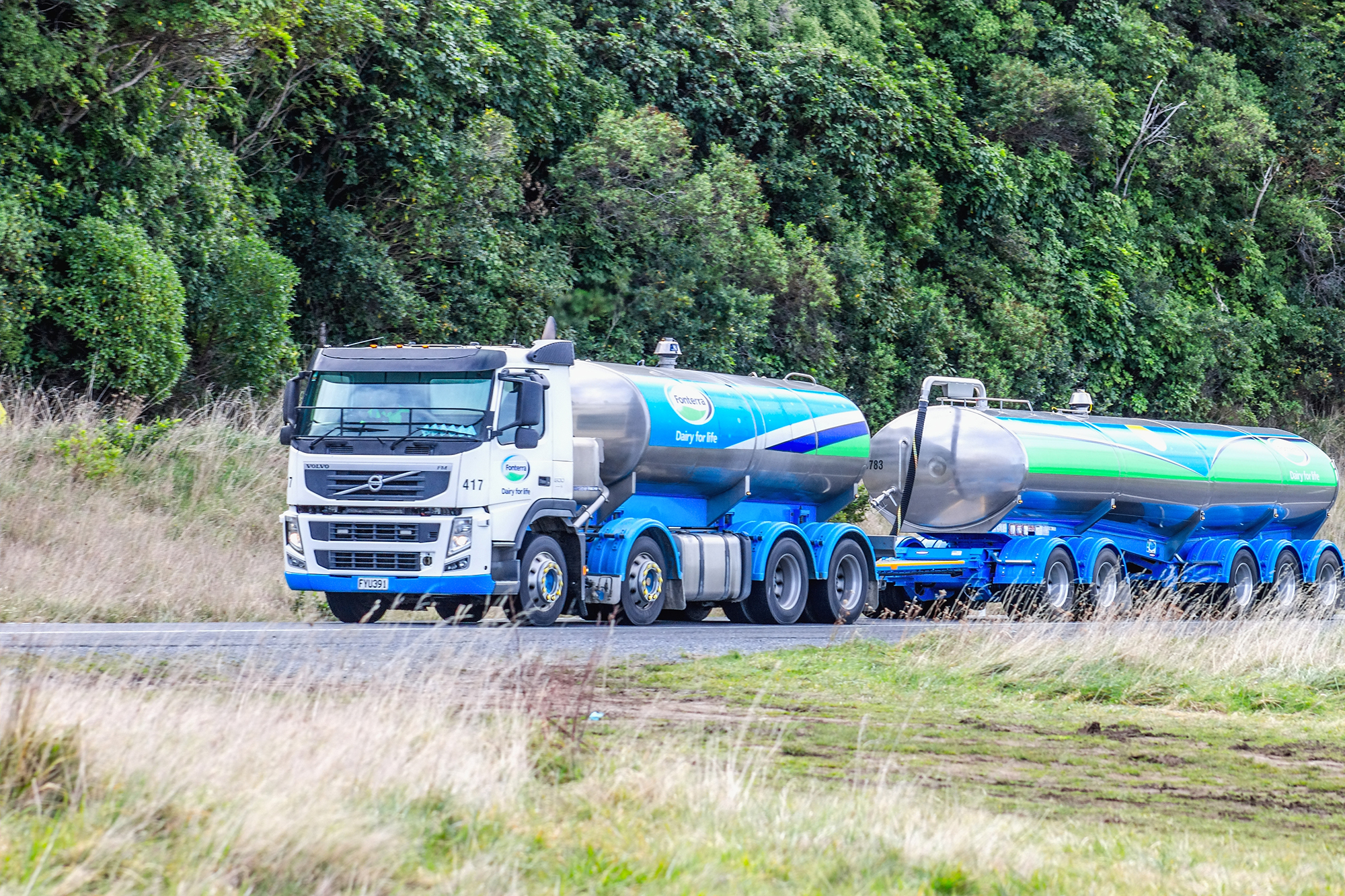Fonterra
Nationwide milk vat monitoring improved quality, reduced spoilage, and removed 17 tankers from the road.
Client
Fonterra Co-operative Group
Industry
Dairy
Region
New Zealand
Project Focus
Milk Data & Collection
Halo Deployment
Nationwide deployment across Fonterra's extensive supplier base
Project Duration
2019 - Present

Challenge
Fonterra faced significant challenges in optimising milk collection across its national dairy network. Without real-time data on milking times and milk volumes, inefficiencies in scheduling tanker pickups arose, leading to several operational issues. Fonterra needed to answer the following questions:
- How can we optimise tanker fleet scheduling to reduce operational costs, emissions, and fleet inefficiencies?
- How do we prevent milk spoilage by ensuring timely and accurate tanker pickups based on milking times and volumes?
- How can we reduce milk waste and improve on-farm milk quality monitoring with better visibility into milking data?
- How can we integrate existing farm systems and leverage real-time data for smarter fleet management?
Solution
Halo deployed its Milk Vat Monitoring System (MVMS) across Fonterra supplier farms nationwide. The system provided Fonterra with live data on milking times, milk volumes, and vat temperatures, enabling dynamic scheduling of tanker collections and optimising fleet utilisation. Farmers also gained real-time insights and alerts to protect milk quality and reduce on-farm waste. In addition, the system included an option for full-farm integration, allowing suppliers to connect additional monitoring solutions through the Halo Gateway. By enabling smarter scheduling and reducing the number of tanker trips required, the MVMS rollout also delivered significant environmental benefits through lower vehicle emissions and improved sustainability performance.
Impact
Fonterra's logistics network
Now benefits from live data on milking times and milk volumes, improving fleet scheduling and reducing waste.
17 fewer milk tankers
Required in the 2022/23 dairy season, resulting in lower operational costs and fewer emissions.
50% reduction
In insurance letters for on-farm, temperature-related milk disposal, thanks to improved monitoring and fewer milk spoilage incidents.
45% reduction
In insurance claims related to milk spoilage.
Customer Voice


